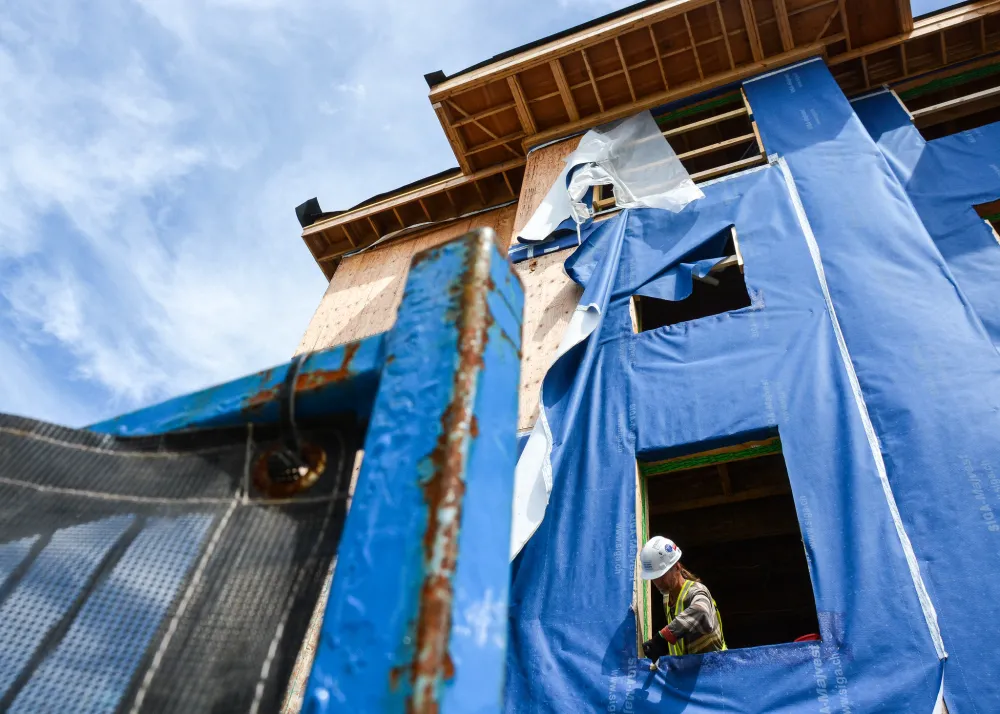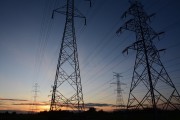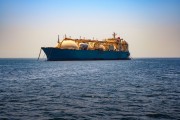Many of us wish we could have a do-over of 2020. It was a doozy. However, as British Columbians look to rebuild the economy and tackle the climate emergency in 2021, we can draw on a few lessons from the past year.
In the face of the pandemic, B.C. businesses have been nimble and innovative (think online sales, curbside pick-up, retooling to address essential needs). We have traded time sitting in traffic for time to walk and bike, renovate our homes, tutor our kids, and bake. We have learned to never say never. We’ve reaffirmed values that are important to us: health and well-being, community, and resilience. These learnings will help shape how we rebound from a challenging year.
Early in the pandemic, Premier John Horgan committed to “building back better.” The government vowed to put the CleanBC climate plan at the core of B.C.’s economy recovery. This commitment was reaffirmed in the premier’s mandate letters to all of the cabinet ministers in his new government.
Here are three ways we’ll be looking to the B.C. government to support families, communities, and businesses on the road to a resilient, clean economy in 2021.
1. Secure a resilient recovery
A resilient economic recovery must address the urgent and emerging health and employment needs of British Columbians while growing the clean economy and making progress on our climate commitments. To do this, the government should align recovery programs with these priorities:
- Build an inclusive, low-carbon workforce that is resilient to future economic shocks
- Design climate initiatives and incentive programs to ensure clean choices are accessible to and benefit all British Columbians
- Prioritize investment in industries and businesses producing low- and zero-carbon goods and services to grow the clean economy and become a leader in the decarbonizing global marketplace
- Ensure all economic relief and stimulus programs complement or accelerate progress on B.C.’s climate plan and targets.
2. Chart the course to 2050
Canada has set a target of net-zero carbon emissions by 2050; B.C. has committed to follow suit with its own legislated target. Signalling a goal of eliminating climate pollution from B.C.’s economy within the next 30 years means all policies, programs, and investments must be compatible with a net-zero future.
There is no wiggle room in B.C.’s carbon budget for any new large emission sources, such as new liquefied natural gas terminals, that increase B.C.’s carbon pollution. To protect our communities and help the world avoid the worst impacts of climate change, B.C. too must decarbonize by 2050.
3. Keep up momentum and close the gap to 2030
In a North American first, B.C. tabled a legally required climate accountability report in December. It constitutes a sober wake-up call that more needs to be done. Our climate plan has a gaping hole that we must fill. B.C.’s carbon pollution went up in 2018, CleanBC could leave us 28 to 44 per cent short of our 2030 climate target, and emissions may not start to trend downward for a couple more years.
Despite the gap to 2030, we don’t need to reinvent the wheel. CleanBC is a solid foundation, and we must not reverse course on any of its cornerstones, such as carbon pollution pricing. We should accelerate successful programs (e.g. move up the deadline for 100 per cent new zero-emissions vehicle sales); enhance high-impact programs (e.g. low-carbon fuel and renewable gas requirements); improve program design to maximize emissions reductions (e.g. heat pump incentives); and tackle harder-to-transition sectors (e.g. heavy-duty vehicles and heavy industry). We also need a detailed strategy to increase the supply of renewable electricity and clean fuels, and decrease the use of fossil fuels, in line with B.C.’s climate targets.
The past year was full of hardship. Nevertheless, we can take heart that families and businesses have adapted, and communities and countries have come together to overcome the challenges of the pandemic. It is this resilience, determination, and sense of common good that we’ll need to draw upon to tackle the global climate emergency in 2021.
This op-ed originally appeared in the Georgia Straight on January 14, 2021.







